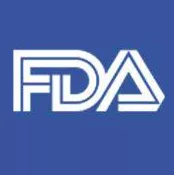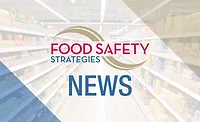FDA's Taylor and Sklamberg Discuss FSMA in Light of PCA Convictions
Editor's Note: The following FDA Voice blog was written by Howard Sklamberg, deputy commissioner for Global Regulatory Operations and Policy, and Michael Taylor, deputy commissioner for Foods and Veterinary Medicine. Although the blog is ostensibly written for the general public, we thought both the officials' perspective and U.S. Department of Justice press release might be of interest to our readers.
Last Friday, Sept. 19, 2014, a federal jury in Georgia returned guilty verdicts against two former officials of and one broker for the Peanut Corporation of America (PCA) in connection with practices that led to a 46-state outbreak of Salmonella poisoning in 2009. [Read the U.S. Department of Justice press release here.] While there were more than 700 reported cases, including nine deaths, epidemiological projections by the Centers for Disease Control and Prevention put the total number of illnesses at more than 22,000.
The convictions arise from the unlawful sale of Salmonella-tainted peanuts and peanut products. According to the evidence, the trio participated in a scheme to fabricate documents stating that the foods were free of disease-causing bacteria when, in fact, there had either been no testing or the testing had revealed the presence of such bacteria.
We can’t tell you this will never happen again. But we can say that five years after the original actions that led to the PCA convictions, we have stronger protections in place – with more coming soon – that will help prevent foodborne illnesses while empowering us to act swiftly against those who flaunt food-safety regulations.
The FDA Food Safety Modernization Act (FSMA), signed into law in 2011, was passed by Congress with the intent of building a safety net that would provide protections at all points along the global food-supply chain – from farm to table.
FSMA empowers FDA to facilitate the growth of a food-safety culture, working with federal and state agencies, and with farmers, food manufacturers and importers, to bring about widespread compliance with the new regulations mandated by the food safety law.
We are still in the midst of rulemaking designed to help keep food safety problems from happening in the first place. We can never prevent all problems and will still have to be vigilant and take action when problems do occur. But having a prevention-based system in place will go a long way to keeping food safe for American consumers. We have proposed seven rules since January 2013 to implement such a system, and last week we issued supplemental proposals to make practical and targeted changes to four of those rules related to the safety of produce, human and animal food products, and imported foods. We are working on implementation strategies well in advance of the 2015 dates on which the rules will be final so we will be ready to put these new requirements in place. We are also working on a plan for outreach and education, so that everyone involved in providing our food – including growers, food processors and importers — will know what the rules require and will have adequate time to plan.
Looking for quick answers on food safety topics?
Try Ask FSM, our new smart AI search tool.
Ask FSM →
What you may not see in the language of the proposed rules is that FDA is reinventing itself to become as much a coach as a cop. In partnership with state and federal agencies, we will help provide technical assistance and education, and we will provide guidance to help farmers and industry build a framework that protects their products from contamination and, if potential hazards are identified, enables them to act immediately to control them.
That’s not to say that we won’t use tough enforcement tools when necessary, as evidenced by the PCA prosecution. When consumers are at risk, FSMA has given FDA greater authority to take action, in addition to bringing a civil action or seeking criminal prosecution. We can issue mandatory recalls when a company fails to voluntarily recall unsafe food; we can detain products that are potentially in violation of the law to keep them from being moved; and in certain situations we can suspend the registration of a facility to prohibit it from distributing food.
The law gives us these powers. But the vast majority of farmers, manufacturers and importers are committed to providing safe food. FSMA also gives us the power to work with them in partnership to keep foods safer than ever for you and your family.







